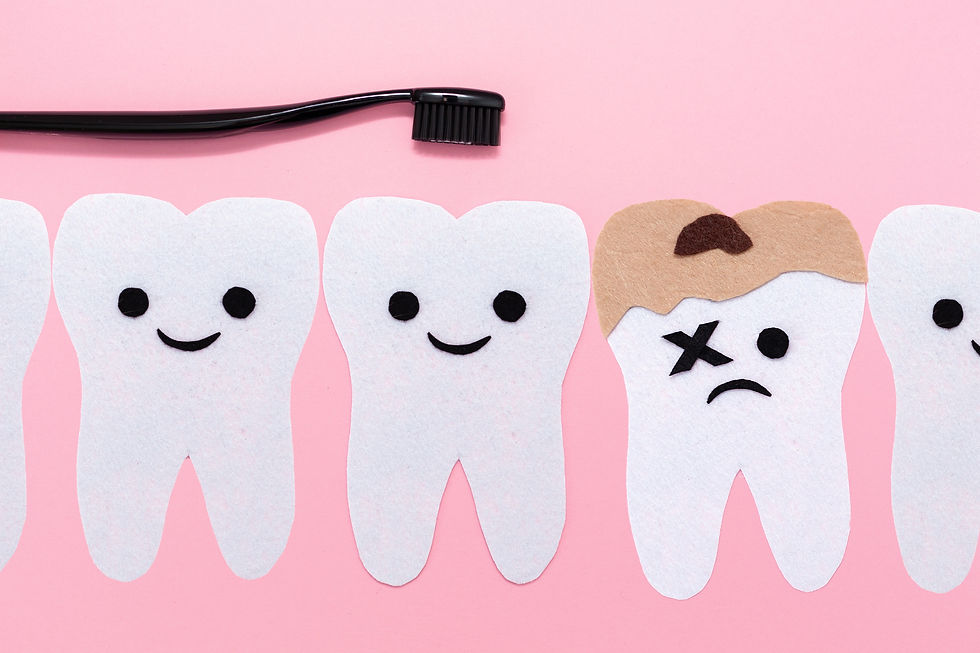Wisdom Teeth 101: What They Are and When to Remove Them - Explained By Your Seattle, WA General Dentist
- Zen Dental Center

- Aug 13, 2025
- 2 min read

What Are Wisdom Teeth?
Wisdom teeth are located at the very back of your mouth, two on the top and two on the bottom. They were useful to our ancestors who needed extra molars to grind down rough, raw food. Today, thanks to softer diets and better dental care, most people don’t need them—and in many cases, there simply isn’t enough room in the mouth for them to grow in properly.
Common Problems with Wisdom Teeth
Not everyone has trouble with wisdom teeth, but when problems do arise, they can include:
1. Impaction
Wisdom teeth can become "impacted" if there’s not enough space for them to erupt normally. This means they are trapped in the jaw or gum, which can lead to pain, swelling, and infection.
2. Crowding
If your wisdom teeth push against other teeth, it can cause crowding and shift your existing teeth out of alignment—especially if you’ve had braces.

3. Tooth Decay & Gum Disease
Wisdom teeth are located far back in the mouth, making them hard to clean. This increases the risk of cavities, gum infections, and even cysts.
4. Pain & Discomfort
Even if your wisdom teeth come in straight, they can still cause pressure, headaches, jaw pain, and difficulty chewing.
When Should Wisdom Teeth Be Removed?
Not all wisdom teeth need to be extracted. Dentists often recommend removal if:
They’re impacted or partially erupted.
There’s not enough room in the mouth.
They’re causing pain or damage to neighboring teeth.
They’re increasing the risk of infection or gum disease.
Your dentist or oral surgeon will usually assess this with X-rays and an oral exam.

What to Expect During Wisdom Tooth Removal
Wisdom tooth extraction is a common outpatient procedure. It can be done under local anesthesia, sedation, or general anesthesia, depending on the complexity. Recovery typically takes a few days to a week, during which you may experience swelling, soreness, and need a soft-food diet.
Recovery Tips:
Rest and avoid strenuous activity for a few days.
Use ice packs to reduce swelling.
Follow your dentist’s instructions on pain management and oral hygiene.
Avoid smoking, drinking through straws, and hard or spicy foods during healing.
Wisdom teeth don’t always need to be a problem—but when they are, early detection and treatment can save you a lot of pain and prevent long-term issues. If you're in your late teens or early twenties, it’s a good idea to talk to your dentist about your wisdom teeth and whether they may need removal.
Need an evaluation? We offer comprehensive exams and expert guidance on wisdom teeth management. Schedule your appointment today and let us help you stay one step ahead of your oral health!
.png)


